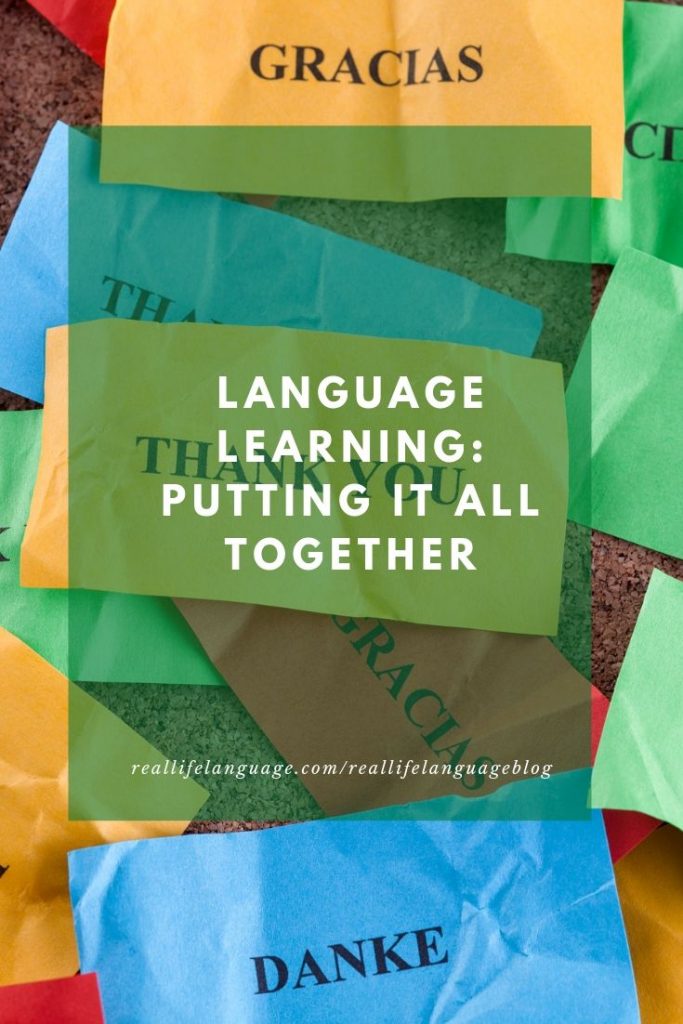
Language Learning: Putting it All Together
You already know the basics of learning a language. It takes time. Some languages are more difficult for English speakers to master than others. You can create and curate your own materials to learn new vocabulary. Carve out time each day to study, and/or combine language learning with another part of your routine (i.e. your commute). Check out this video on putting it all together.
Prefer to read about language learning? Here’s the transcript:
Welcome to our last lesson. Today we’re going to talk about putting it all together. At this point, you know all about language categories. Are you trying to learn a category one language, a category two language, three, four? You know this. You also know how long it’s going to take to learn that language. You also know or devising a plan of how you’re going to fit this into your life realistically.
The problem with a lot of language learning programs is they don’t provide a provision amount of time for people to see and experience tangible progress. And it gets frustrating and they give up. Why would you keep doing something without a reward. Be realistic. I highly recommend carving out your chunks in increments of 200, and then dividing it further. Spending 30 hours on one program or activity, maybe in your car, it gives you time to assess. Or 50 hours working in your car.
However, this is going to fit into your life, then you’re going to regroup and maybe get a more rigorous program after that. So again, something that fits into your life.
200 is enough to see tangible progress, but we’ll review everything in the self-assessment workbook, which you can download, and all of the resources that we talked about are going to be linked to out there and reviewed. So you can have the power now to have somebody else assess your language proficiency. And I think more importantly, the the tools and resources to be able to do it yourself so you can always move forward.
You also want to remember that learning any language is a matter of time and engagement on tasks. And then that’s going to build your fluency. It doesn’t happen overnight. Please stick with it long enough to be able to give yourself an opportunity to make progress. And if you want to get started in 11 languages, there are thousands of downloadable MP3s. You can make your own playlists. There’s lots of articles and resources on reallifelanguage.com, Real Life Language blog. And we hope to see you there. Goodbye.
Want to set goals and measure your progress? Get the self-assessment workbook here.